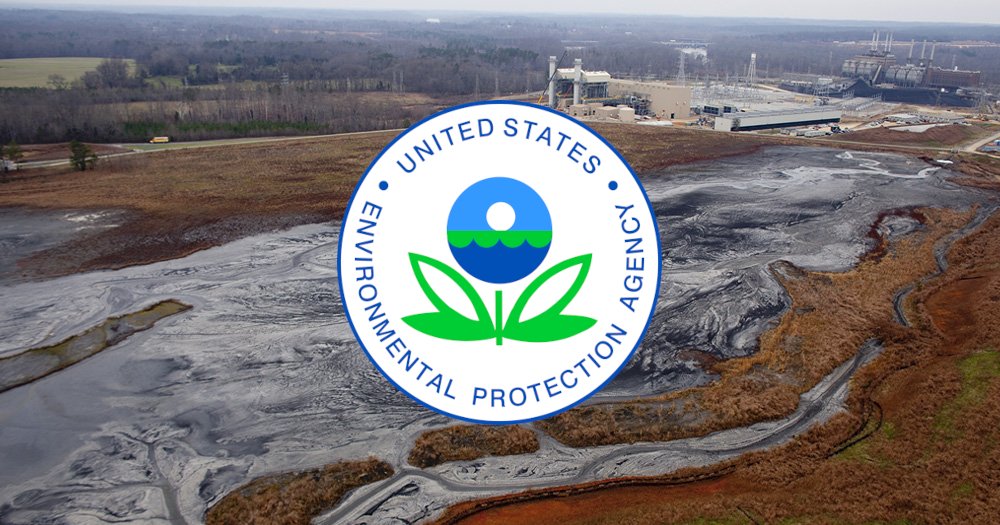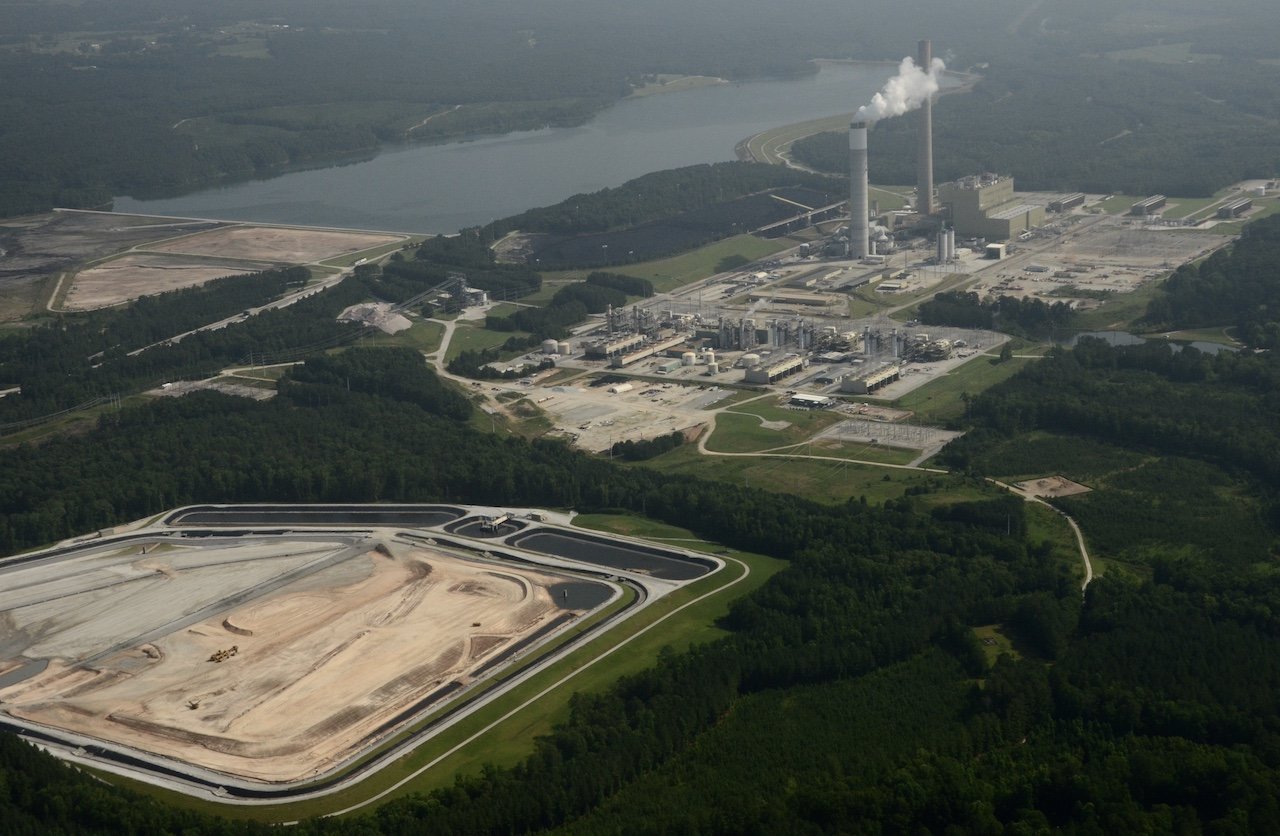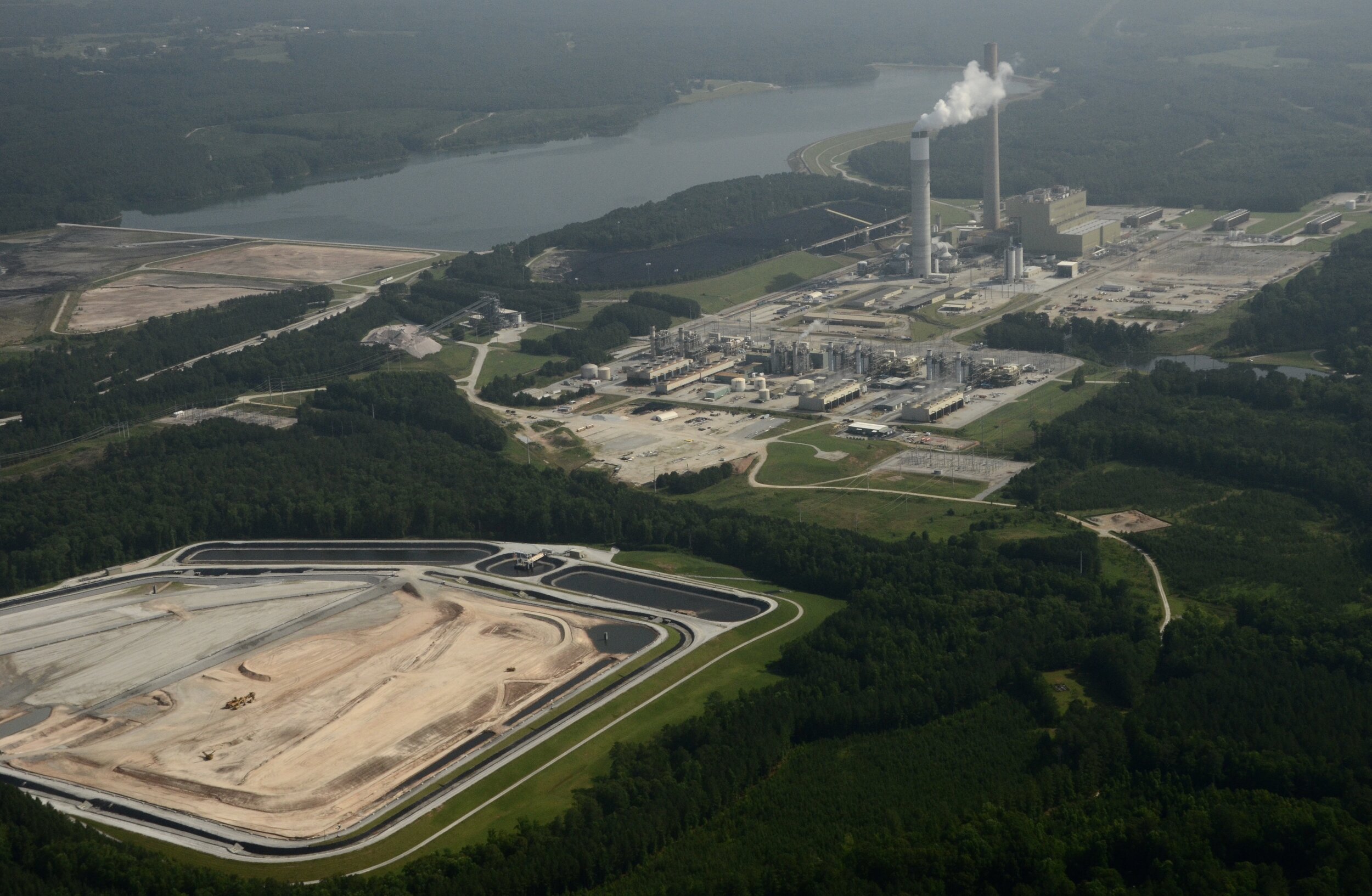
Latest Updates on Georgia Coal Ash

EPA Takes Critical Action to Address Coal Ash Pollution — SELC Release
The U.S. Environmental Protection Agency just took critical steps to protect communities and clean water from toxic coal ash pollution by making it clear that utilities must deal with ash sitting in groundwater, groundwater contamination, and threats to surrounding communities.
“The U.S. Environmental Protection Agency has stepped up to offer communities hope and to protect clean water, rivers, and drinking water supplies from the threats posed by coal ash,” says Senior Attorney Frank Holleman. “With EPA’s leadership, we now have the opportunity to put coal ash pollution and catastrophes behind us and to restore commonsense protections for communities across the South who have lived with coal ash contamination for far too long.”

Sierra Club Takes Coal Ash Cost Recovery Fight to Georgia Supreme Court
Today, Sierra Club filed an appeal with the Georgia Supreme Court disputing a lower court’s ruling that Georgia Power can collect billions from customers for coal ash cleanup.
This case concerns who should pay the ever increasing costs to clean up Georgia Power’s toxic, leaking coal ash ponds after decades of unsafe and imprudent coal ash disposal practices: Georgia Power itself or Georgia Power’s existing and future customers via higher electric bills. In 2019 the coal ash costs were estimated at $7.6 billion, but recent filings from Georgia Power indicate the amount is now almost $9 billion.

Georgia Court of Appeals Sides with Georgia Power and PSC on Charging Customers for Coal Ash Cleanup
The Georgia Court of Appeals rejected Sierra Club’s appeal over coal ash cleanup costs and who should be responsible to foot the bill. The appeal stems from Georgia Power’s 2019 rate case where the Public Service Commission (PSC) decided to award Georgia Power a rate hike without detail for how the money would be spent. Total coal ash cleanup costs are estimated to be upwards of $8.96 billion, already a significant increase from Georgia Power’s $7.6 billion estimate during the 2019 rate case.
The PSC approved Georgia Power’s increase on ratepayers’ bills without asking for legally-approved closure plans and without even acknowledging or addressing whether Georgia Power should pay some or all of the coal ash cleanup costs given the utility’s history of improper coal ash disposal. A ProPublica investigative report revealed, decades ago, Georgia Power made a business decision to not safely dispose of coal ash the company knew to be toxic to human health because it was not “economically feasible.”

Georgia Power Proposes Risky Coal Ash Pond Closure at Plant Bowen
CARTERSVILLE, GA — The Georgia Environmental Protection Division (EPD) will host an online public hearing at 6 p.m. Oct. 14 on Georgia Power’s proposed plan for toxic coal ash located at Plant Bowen…
Although Georgia Power plans to install a liner at Bowen AP-1, underneath AP-1 lies unstable karst terrain, which is prone to sinkholes and underground caves. Expert analysis shows that a liner will likely not protect ground and surface water from coal ash contamination if another sinkhole develops…
Sierra Club is mobilizing concerned community members to send comments to the EPD and/or attend the public hearing to make it known that the public is opposed to Georgia Power’s dangerous plan. To learn more and sign up to take action, visit GeorgiaCoalAsh.org…

Georgia Power’s Closure Plan for Plant Hammond Coal Ash Pond-3 Leaves Public Water Supply At Risk
ROME, GA -- Sierra Club’s analysis of Georgia Power’s preferred closure method for Plant Hammond Ash Pond-3 (AP-3) shows it does not adequately protect against groundwater contamination, risking the water supplies near the plant and downstream.
Sierra Club’s technical comments can be found here for the public comment period which closed last week. These comments are based on legal expertise and two expert reports that take into consideration geological data about the site.

Georgia Power Plans Unsafe Coal Ash Handling at Plant Hammond
ROME, GA -- The Georgia Environmental Protection Division (EPD) released Georgia Power’s proposed permit to cap-in-place coal ash from Plant Hammond at Ash Pond 3, located near Rome. The draft permit allows Georgia Power to forgo excavating the coal ash and placing it in a lined pit, the safest approach to coal ash storage. Instead, Georgia Power will “cap” the coal ash in place without a liner to protect groundwater, which threatens communities near the plant.

The Price Tag for 92 Million Tons of Toxic Waste in Georgia
Georgia Power wants customers to pay 100% of the costs of cleaning up Georgia Power’s [toxic coal ash] mess… the Public Service Commission (PSC) granted Georgia Power full recovery of over $525 million in coal ash clean up costs plus a guaranteed profit… The utility estimates that its total coal ash clean-up costs are nearly $9 billion, a number that’s increased by $1 billion in just under two years.

Sierra Club Challenges Georgia Power’s $525 million Rate Increase for Coal Ash Problem Company Created
Opening Brief Submitted in Georgia Power 2019 Rate Case Appeal
ATLANTA, GA —Today, the Sierra Club submitted its opening brief to the Georgia Court of Appeals in Sierra Club v. Georgia Public Service Commission and Georgia Power Company over the company’s 2019 rate case where the Southern Company subsidiary was approved to collect $525 million from ratepayers for coal ash pond closure costs. Total coal ash clean up costs are estimated to be upwards of $8.1 billion, already a significant increase from Georgia Power’s $7.6 billion estimate during the 2019 rate case.

Announcing “Rising from the Ashes,” a three-part documentary about Georgia Power’s coal ash catastrophe
Sierra Club Georgia Chapter announces three-part documentary “Rising from the Ashes” about Georgia Power’s coal ash catastrophe
ATLANTA — Today, the Sierra Club Georgia Chapter and Sierra Club Beyond Coal Campaign announced the upcoming release of a three-part documentary series to raise public awareness of the dangers of coal ash in Georgia.
